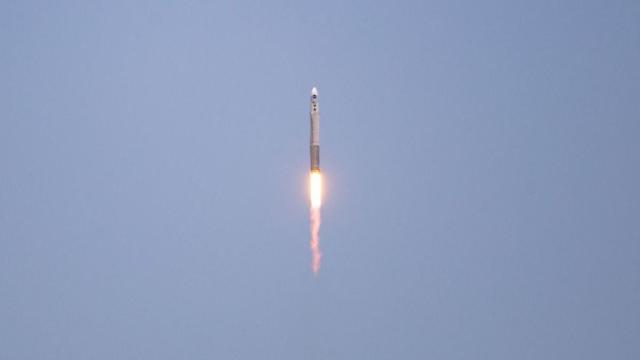Venture-backed rocket makers recently spent an anxious weekend waiting on the outcome of Silicon Valley Bank’s failure, but their latest troubles have no connection to the lender’s collapse.
Astra Space (ASTR) is now fighting to remain listed on the NASDAQ because it can’t keep its stock price above $US1, while Virgin Orbit (VORB) has sent workers home as it hunts for new funding or a new owner.
At each company, the crux of the issue has more to do with the difficulty of launching objects into space than the difficulties of raising capital.
Some Astral projections
Both Astra and Virgin went public through SPAC transactions in 2021, when merging with the blank-check entities known as special purpose acquisition companies was all the rage.
Astra is now working with Nasdaq to keep its shares listed; the exchange’s rules prohibit stocks worth less than $US1, which is where Astra has sat since October 2022.
If Astra is delisted, that would likely complicate efforts to raise money for the development of its fourth-generation rocket, which it set out to build after its last rocket failed to deliver several NASA satellites to orbit.
In November 2022, the company reported about $US150 million in cash and securities on hand and a previous three-month burn rate of some $US200 million. But it also has reported deals to sell propulsion systems it builds, since acquiring the engine-maker Apollo Fusion in 2021.
Astra is currently asking for another 180 days to comply with Nasdaq’s requirements, and will learn the answer by April 5. Otherwise, the company may perform a reverse stock split that would essentially reduce the number of shares available, raising their price without altering the underlying economic reality. Ironically, the company has recently been pushing to increase the number of shares it can issue.
Astra also recently hired investigators to see if its stock is being shorted illegally, which would drive down the price. Blaming short sellers is a common tactic for companies with troubled stock prices, but rarely the solution. About 14% of the company’s shares were lent to short sellers at the end of February.
Astra reports earnings on March 30, which will provide the next datapoint on the firm’s finances.
The Virgin Orbit….
Virgin Orbit’s recent troubles began with a failed launch in January. That meant lost revenue not only from the customers involved, but also due to delays to future launches as engineers figure out what went wrong and how to fix it.
The company was also running low on cash: In its last report, from September 2022, the company had $US72 million on hand, versus a three-month burn rate of $US43 million. One reason for that was SPAC investors pulling out of the company’s going-public transaction, leaving it with $US255 million less capital than expected.
Financial analysts were already worried about the company before the launch failure, and since then, founder Richard Branson has kept the venture afloat. The decision to pause operations this week, however, suggests that Branson has decided its time for someone else to finance the air-launched satellite company.
Virgin was able to launch succesfully four times, but the high cost of development and inability to maintain a regular cadence meant it never quite got traction. The operational pause at the company is expected to last through March 21.
…and the chad Rocket Lab
It’s not all bad news in the sector. Rocket Lab (RKLB), the US-New Zealand firm that is the most successful small-rocket launcher, used its new US launch site for a second time to put in orbit two space radar satellites built by Capella.
Rocket Lab, too, went public through a SPAC in 2021. And while the company revealed a $US135 million loss in 2022, it also has $US471 million in cash on hand.
Rocket Lab expects to lose $US30 million this quarter, mainly due to investments in a larger rocket called Neutron that could compete directly with SpaceX’s Falcon 9. That’s a reminder that while Rocket Lab has been able to launch more rockets than any other post-SpaceX start-up, it’s also still challenged to compete with Elon Musk’s space behemoth.
Analysts have predicted a shake out and consolidation in the small rocket business for years, arguing that there just aren’t enough satellites for all these proposed rockets. At the same time, satellite company operators are eager to see more options for launching their spacecraft, with only two commercial providers — SpaceX and Rocket Lab — currently providing reliable service.
A year or two ago, struggling rocket makers may have had a chance to raise money and keep trying. Now, their time might be running out — and as space market analyst Chris Quilty told Quartz earlier this year, “if you made the wrong bet in a launcher company, you should expect zero back.”
This article originally appeared at Quartz.
